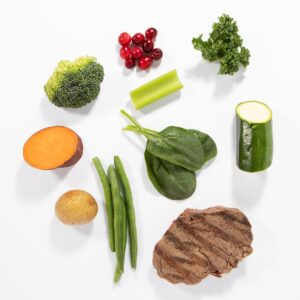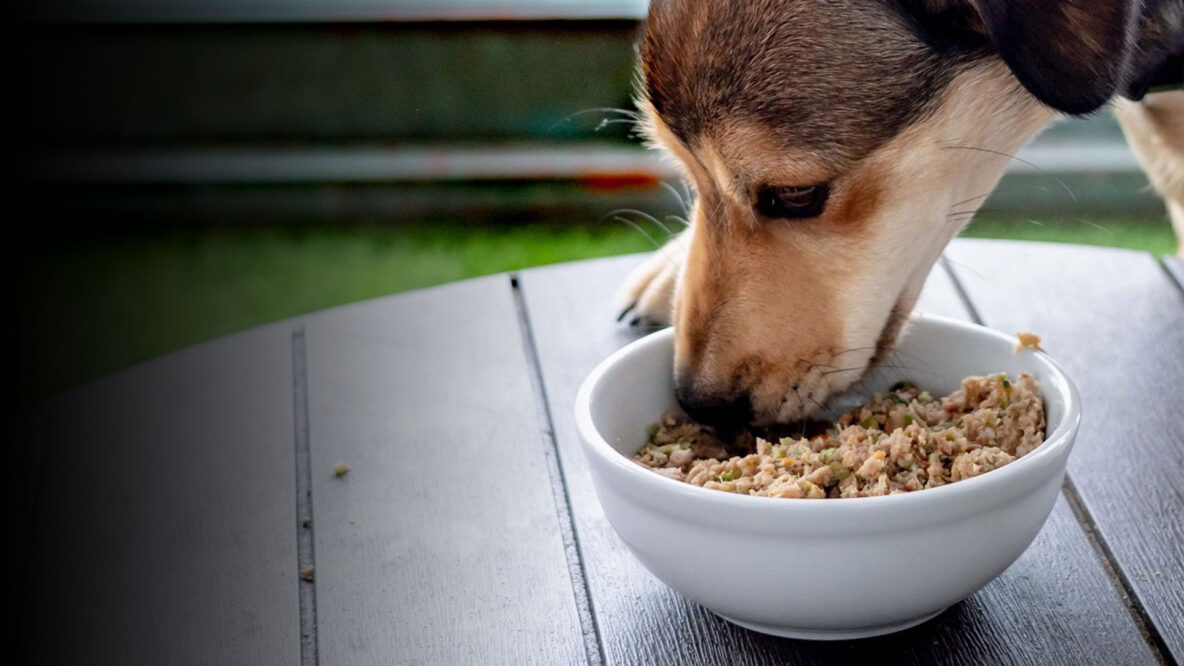Nobody wants to see their dog suffering with itchy skin or rashes. Both of these are a common symptom of allergies. Allergies may be caused by many things. Fleas are the biggest cause, but food and environmental factors (soaps, pollen, etc.) may also be culprits.
Food intolerances (often confused with allergies) may be due to the way a food is processed, or by synthetic substances in the food that the dog’s system perceives as an allergen, and may also produce symptoms such as sensitive stomach, gas or diarrhea.
So how can you help?
While there are treatments to help with symptoms, simple diet changes may make a world of difference.
Here are three changes to consider:
1. Steer clear of meat meals.
Many people are surprised to learn that beef, and other meats top the list for food allergies in dogs. In reality, most dogs aren’t eating these meats in their natural state. Instead they are eating meat meals, which are highly processed and often contain lower quality meats or parts of the animal processed with high heat.
Meat is largely protein and when protein is exposed to high heat (as it is in the meal making process), the protein may change into a form that the dog’s system no longer recognizes as real meat. That is why you see synthetic amino acids listed as ingredients in many pet foods claiming to be made with real meat.
Most products made with meat meals also contain some form of preservative so they can sit on your shelf without spoiling. These preservatives can also trigger allergy symptoms. That means a dog who can’t eat the meat meal in a conventional dog foods, may do just fine with fresh, lightly baked beef like you find in some of our My Perfect Pet blends. Conventional wisdom suggests trying a unique protein, one the dog hasn’t eaten before, but before you start tracking down kangaroo meat, try offering food with real meat, lightly cooked for safety. Your dog may do just fine once you switch from meal to real.
2. Limit grains.
Corn and wheat are often used as fillers in dog food, even though these two grains are on the list of common allergens for dogs. Other common ingredients include brewer’s rice or other by-products of the whole grain, which are poorly digested and can also trigger allergic responses.
Whole grain brown rice that is fully baked and tender is tolerated by most dogs, and can even have a soothing effect on the digestive tract. Fully cooked whole grain brown rice is even recommended for dogs with certain environmental allergies, or sensitive stomachs, because of its ability to regulate the digestive tract and reduce overall stress in the dog’s system.
However, like any other food, when any grain is highly processed, its make up changes, which can cause problems for some dogs. Rice used in dog food should be whole grain, stored carefully and cooked lightly.
Grain Free doesn’t always mean better quality. Eliminating poor quality, highly processed grains from the diet is good, but the key to a healthier pet, with fewer health issues including allergy symptoms, is to move to a healthier, higher quality diet.
Because of its health benefits and the variety of nutrients and antioxidants it contributes to the diet, we include whole grain brown rice in some My Perfect Pet Blends. It’s lightly steamed and blended with other lightly cooked foods. Most dogs don’t need to go grain-free, but all dogs should go fresh and healthy, and the grains they eat should be quality food, prepared right.
3. Choose real foods for flavor and color.
 Artificial colors and flavors aren’t a necessary or beneficial part of any dog’s diet, yet many commercial dog foods rely on these additives to make highly processed food more palatable. These artificial additives can cause allergic reaction in dogs.
Artificial colors and flavors aren’t a necessary or beneficial part of any dog’s diet, yet many commercial dog foods rely on these additives to make highly processed food more palatable. These artificial additives can cause allergic reaction in dogs.
Natural flavorings, although they sound better, are also highly processed. To avoid these types of additives, choose lightly cooked real food that is rich in color and flavor—naturally. Your dog gets better nutrition, better flavor, and fewer ingredients that may result in an allergic reaction.
Any one of these three changes may help reduce symptoms of allergies or food intolerance in our furry kids. There’s a common thread among them: Feeding our pets low-quality food of any type is a problem. Like us, our pets deserve quality fresh food, cooked for safety and flavor.
A diet rich in real meat and whole fresh foods gives your dog the basis for overall good health, good digestion, and a healthy immune system. Choosing quality real food will not eliminate allergies in all dogs, but a few simple diet changes may reduce allergy symptoms for many dogs. Regardless, these changes will contribute to a healthier pup.

